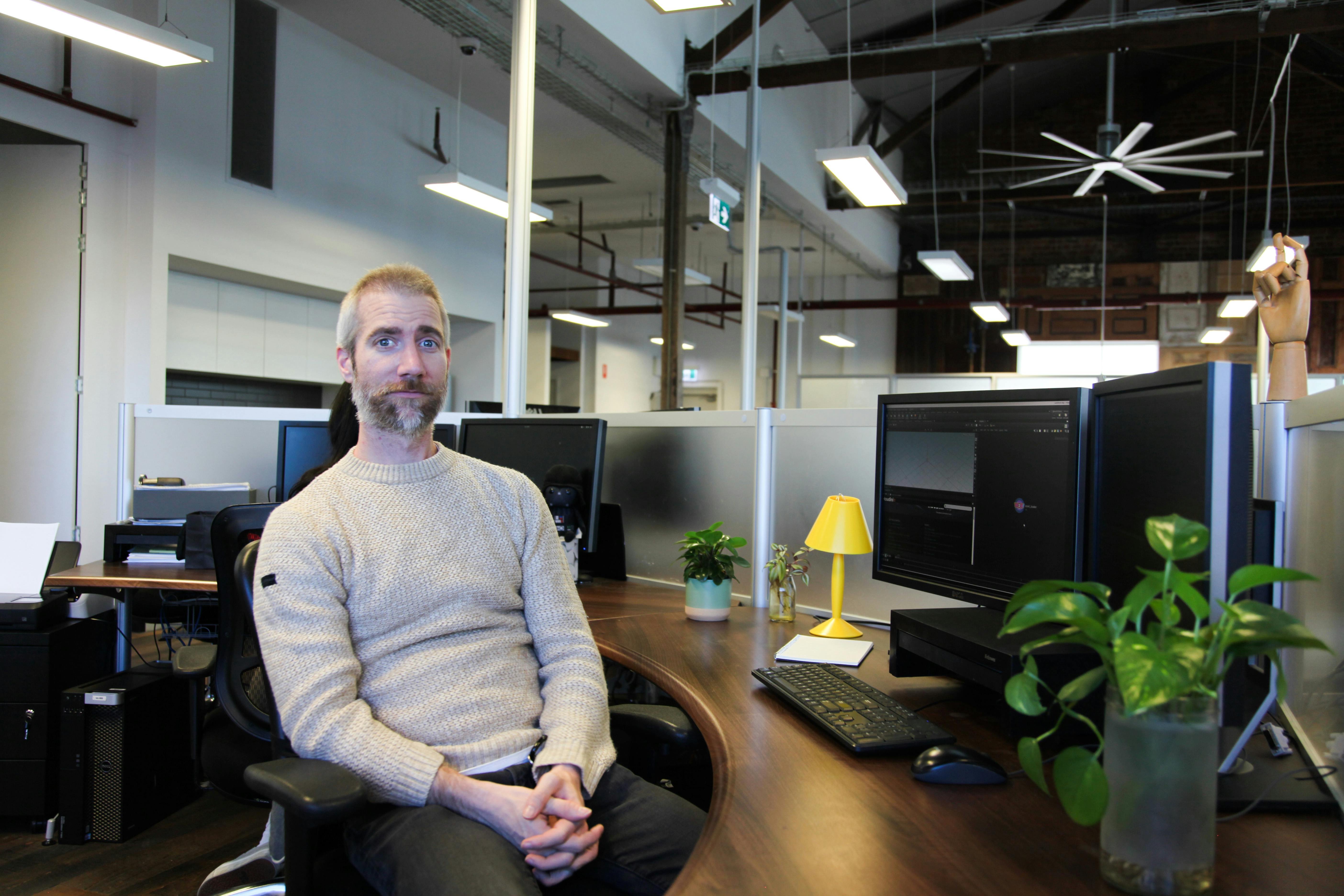Adam Gailey joined Luma last year and is the FX Supervisor at our Melbourne studio. Before Luma, Adam worked at major global VFX studios including Industrial Light and Magic, MPC, and DNEG and has contributed to award-winning films like Deepwater Horizon and Interstellar. Most recently at Luma, he led the FX department on Spider-Man: Far From Home for the epic Molten Man Battle that featured extensive FX.
We snatched Adam out of his busy day to get to know him a little bit better. Here, Adam tells us all about how he landed in the wild wild world of VFX, the time he walked around London studios handing out his demo reel, and the things in life that inspire him most.
Have a read!
Give us the 411. What’s your background and how did you get into VFX?
I spent a lot of my early life drawing or playing drums and by my early 20s, my time was divided pretty evenly between playing drums in various bands in the D.C. area and making large scale scratch panel murals and drawings. Eventually, I decided to leave my heavy metal dreams behind for Art school at VCU. I wanted to be a painter or a photographer but I wasn’t accepted into either discipline. My third choice was a program called Kinetic Imaging that focused on motion graphics, animation, and sound engineering.
